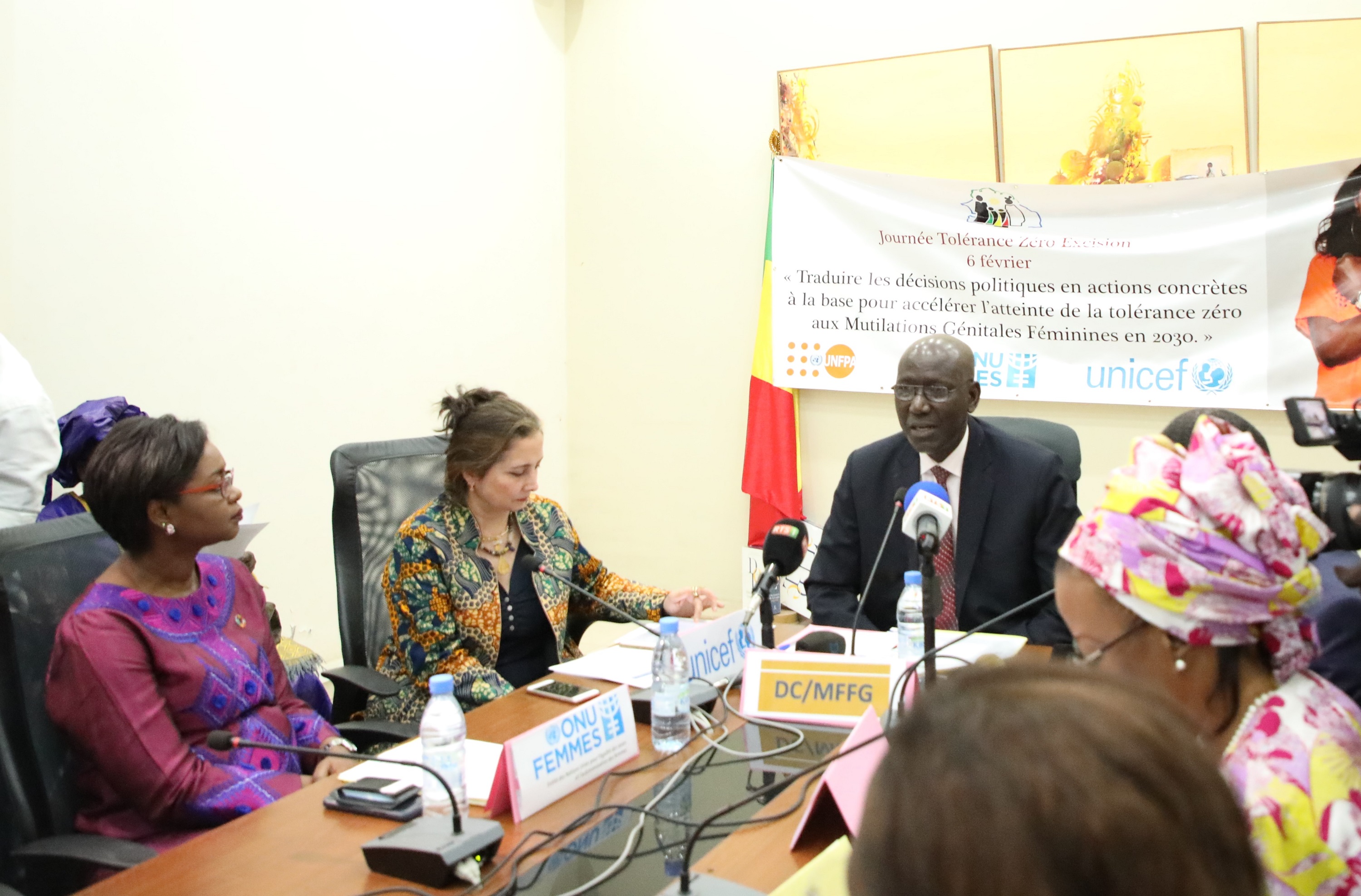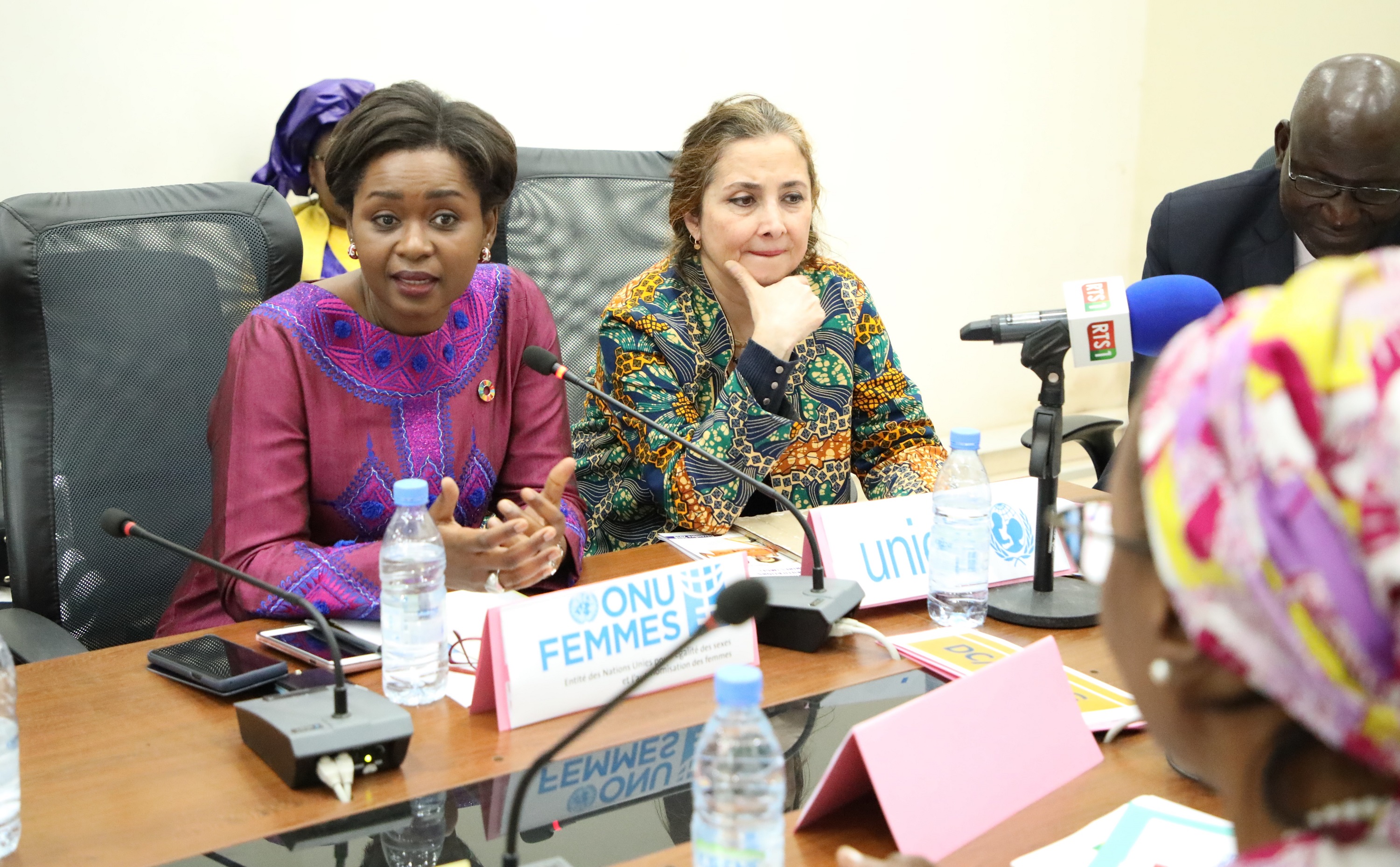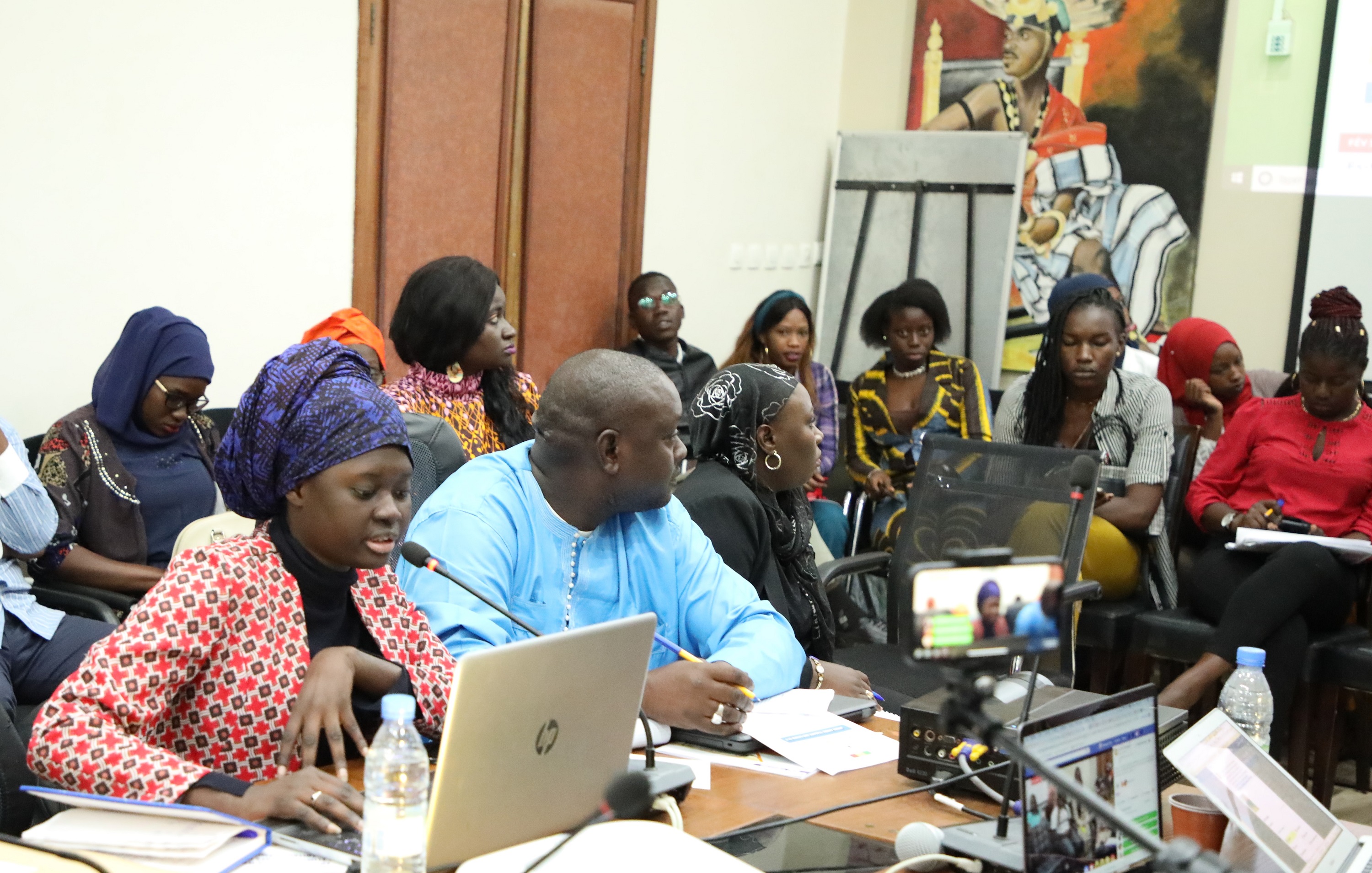International Day of Zero tolerance to FGM: translating policy into concrete actions at the grassroots to end FGM in Senegal
Date:

February 6th, International Day of Zero tolerance to Female Genital Mutilation. The Government of Senegal, through the Ministry of Woman, Family and Gender, marked this important day with an event that brought together UN Women, UNFPA, UNICEF, the Ministries of Health, Justice, Education and Youth, and also civil society and youth organizations. It was an opportunity to establish the state of play and brainstorm on avenues for action to end FGM by 2030.
At the opening ceremony, the Representative of UNICEF in Senegal, Laylee Moshiri, addressed the audience on behalf of the UN System and called “on government, civil society, communities and individuals to take immediate action and play their part in translating policy into action to accelerate the eradication of FGM by 2030.”
Other speeches were made by the Chief of staff of the Ministry of Woman, Family and Gender, the Representative of COSEPRAT (Senegalese Committee on Traditional Practices) and a youth delegate.
Then, a panel moderated by a youth delegate allowed the representatives of the relevant sector Ministries and organizations involved in the fight against FGM to discuss the theme: translating policy into concrete actions at the grassroots to accelerate the achievement of zero tolerance to FGM.

Oulimata Sarr, Deputy Regional Director of UN Women WCARO, reaffirmed the commitment of UN Women to end FGM so that the millions of girls who are still at risk of being mutilated by 2030 do not experience it. She added that to curb FGM, “we need an integrated approach that leverages public policies but also a change in sociocultural norms”.
Some key takeaways from this panel and the discussions were:
- More awareness raising at the community level on the consequences of FGM and the ways to report it
- Create synergies between relevant stakeholders (i.e Justice, Health, Community) for more effective case prevention and handling.
- Include GBV education in the training curricula of all those involved in the care chain (health, justice, security)

The representatives of youth organizations greatly contributed to the success of the event. Indeed, they shared a survey from Ureport showing the level of knowledge of FGM by the Senegalese youth and read a memorandum they prepared to advocate for the eradication of FGM.